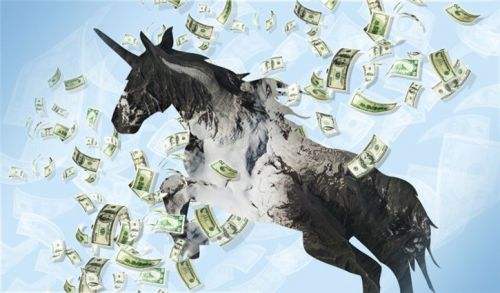China had 131 "unicorns" by the end of 2016, nearly doubling the figure of the year before, said Zhang Zhihong, director of the Torch High Technology Industry Development Center of the Ministry of Science and Technology.
科技部火炬高技术产业开发中心主任张志宏近日表示,截至2016年年末,我国已有131家"独角兽"企业,较上一年增长近一倍。
Unicorn refers to young, unlisted companies valued at $1b or more, based on private funding sources.
独角兽企业指估值不低于10亿美元、获得过私募投资且尚未上市的年轻企业。
China's unicorns are spread over 16 cities, but mostly in Beijing, Shanghai, Shenzhen and Hangzhou. The majority are innovation-driven tech businesses, Zhang said.
张志宏称,我国目前已经有16个城市出现了独角兽企业,但北京、上海、深圳和杭州是其主要集聚区。绝大多数独角兽企业是创新驱动型科技企业。

A report published by the torch center earlier this year said half of China's unicorns are in Beijing's Zhongguancun, home to China's three super-unicorns worth over 10 billion U.S. dollars: Xiaomi, Didi Chuxing, and Meituan.
今年前段时间由火炬中心发布的一项报告指出,中国一半的"独角兽"企业位于北京中关村,在那里有三家市值超过100亿美元的超独角兽企业,分别是小米、滴滴出行和美团。
Zhang said a pro-innovation business environment, conductive policies, and good services are key to the growth of unicorns.
张志宏称,一个支持创新的商业环境、具有引导性的政策和良好的服务,是这些"独角兽"企业壮大的关键。
"Unicorns have become important engine to maintaining medium-high growth and to transforming industry," Zhang said. "Their emergence is attuned to the development of the sharing, smart and platform economies."
张志宏表示:"独角兽企业已经成为推动经济中高速增长、产业改造的重要引擎。独角兽企业的出现适应了共享经济、分享经济、智能经济和平台经济的发展趋势。"












